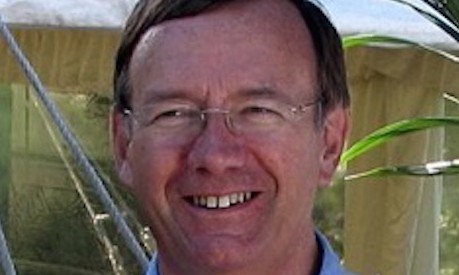Writing a “new” biography of Pope Francis is fraught with challenges.
For one, there have already been so many biographies written that it is difficult to imagine how anything new or previously unknown could be presented.
For another, the fact that Francis himself is making headlines weekly (at least) rather tends to highlight there may well be more interest in his own words rather than what might be written about him.
Given such challenges, Austen Ivereigh’s new biography, The Great Reformer: Francis and the making of a radical Pope is a highly significant – and successful – achievement.
The Man and His Three Reforms
In his Prologue, Ivereigh writes that “This is a story not just of the man [Jorge Bergoglio/Pope Francis] but his three reforms: of the Argentine Jesuit province, of the Argentine Church, and now of the universal Church.”
It is an ambitious undertaking but Ivereigh is well-qualified to attempt it: he was (briefly) a Jesuit novice; he wrote his PhD thesis on the Church and politics in Argentina and he is well-versed in the universal Church having been at one time Director for Public Affairs of Westminster Archdiocese under Cardinal Cormac Murphy-O’Connor.
This background enables Ivereigh to write with great insight and clarity on the society and the Church which formed Jorge Bergoglio.
More than any other English-language biography, Ivereigh “fleshes out” Bergoglio and shows that what he is doing worldwide now is a continuation of what he was doing in Argentina and in Latin America.
Most significantly, Ivereigh makes it more evident and understandable why Jorge Bergoglio could have been elected as Pope.
His sensitivity, compassion, political acumen and strength of personality in dealing especially, but not only, with the various political factions in Argentina over many years showed both his pastoral and his leadership skills.
But it has to be said that the very strength of Ivereigh’s background also causes a few difficulties in the biography.
Relationships with the Society of Jesus
The story of the relationship between Bergoglio the Jesuit and the Society of Jesus is both complex and clouded.
From being a very young Provincial, to a virtual outcast within the Province of Argentina (although clearly revered by younger Jesuits), to a bishop who never visited the Jesuit General House in over 20 years, Bergoglio’s relationship with the Society of Jesus remains tied in knots.
It is a reality but one that Ivereigh tries too hard to solve.
He quite clearly sides with Bergoglio and adopts the attitude that he was more sinned against than sinning in terms of his relationships with his fellow Jesuits.
But even Francis himself, since his election as Pope, has acknowledged that he did not always get things right as a leader within the Province of Argentina.
The most notable and well-known controversy was his handling of the situation of two priests (Orlando Yorio and Franz Jelics) working amongst the poor although Ivereigh’s biography provides a new and compelling case for a much more positive reading of Bergoglio’s involvement.
It also doesn’t strengthen Ivereigh’s apologia for Bergoglio the Jesuit that, curiously, twice in the book the name of the current Superior General of the Jesuits is misspelled.
The Conclave
The other – and well-publicised – issue in the biography arises out of Ivereigh’s relationship with Cardinal Murphy-O’Connor.
The account of the 2013 Papal Conclave suggests that there was, in effect, an overt campaign by some cardinals (including Murphy-O’Connor) to ensure the election of Bergoglio and to guarantee his acceptance.
This has since been expressly refuted and Ivereigh has acknowledged that in future reprints the paragraph referring to securing Bergoglio’s assent will be amended to more accurately reflect the reality of what went on at the Conclave.
This is appropriate and Ivereigh is to be commended for his openness and willingness to make things clear – but the fact that it is even necessary might make the reader wonder about the accuracy of other significant episodes in the book.
For all that, though, there is no doubt that this is an extremely important and highly readable book – and one that gives English-language readers in particular an invaluable insight into the social, religious and political background of the man who has become Pope Francis.
Ivereigh concludes the biography with a quote from Pope Francis to the crowds in St Peter’s Square on Pentecost Sunday 2014: “If the Church is alive, it must always surprise.”
The same could be said of The Great Reformer: it is very much “alive” as a biography and in a very positive sense it does continually surprise and enlighten the reader.
The Great Reformer: Francis and the making of a radical Pope, Austen Ivereigh (Allen & Unwin, 445 pages, $49.99)
Brian Cummings SM
- Brian Cummings is Director of the Marist Spirituality Centre at Pā Maria in Wellington and is a former Provincial of the Society of Mary in New Zealand.
